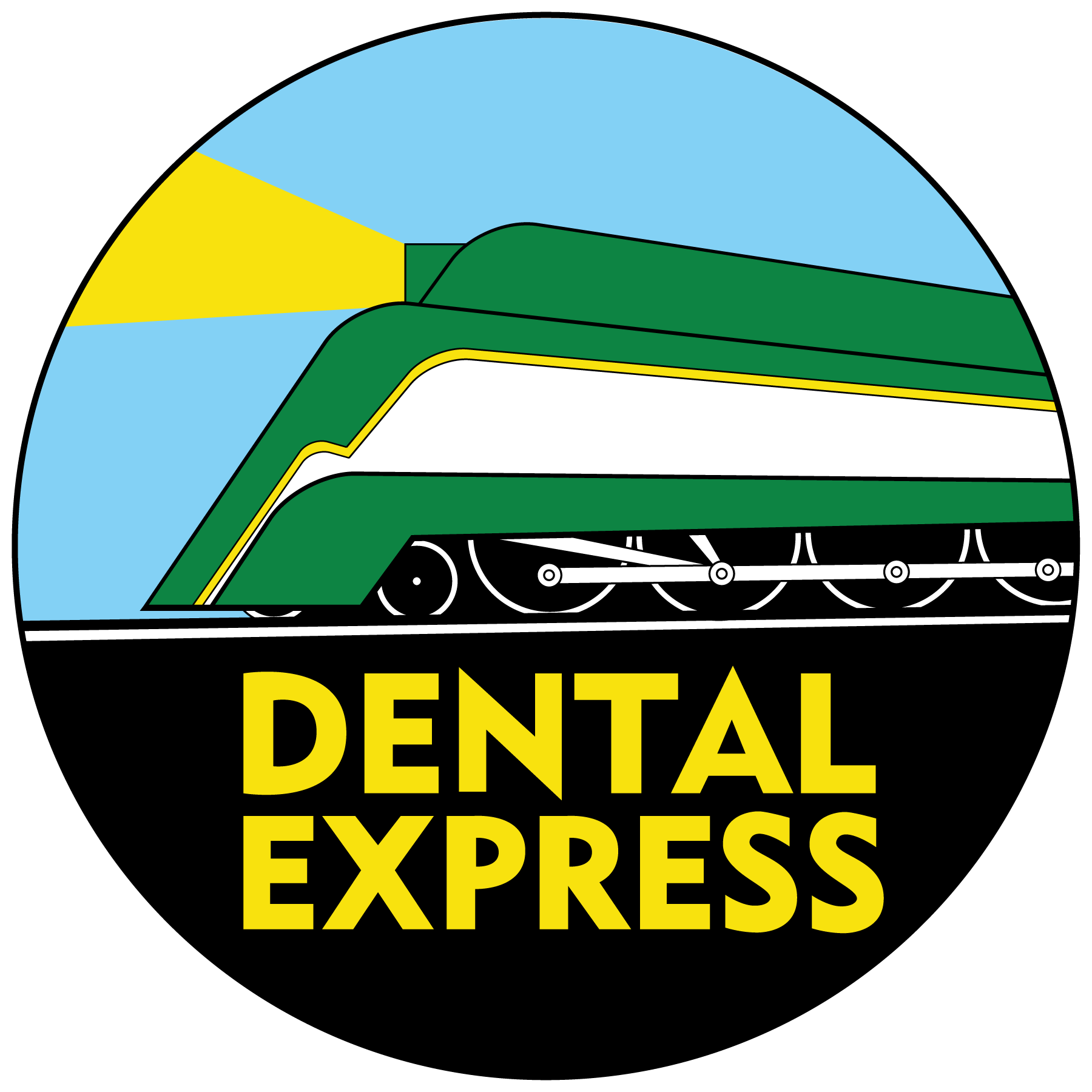It’s October, which means it’s time to celebrate our dental care professionals and promote healthy oral habits for National Dental Hygiene Month!
Every year, October is recognized as National Dental Hygiene Month.
It’s a time where people everywhere can show their appreciation for the dental providers that watch over their smiles.
It’s also an excellent opportunity to raise awareness about oral habits that can help make your teeth stronger, your gums healthier, and your mouth cleaner.
That’s what dental hygiene is all about, after all. And what better time to observe this occasion than right before the holiday season?
So, follow along as we go over the golden rules of oral care that everyone should know, and salute our dental heroes for all their hard work!
The Golden Rules of Dental Hygiene
There are a lot of nuances when it comes to dental hygiene.
Everything that happens in your mouth — from the foods you eat to the way you floss and even to the gum you chew — affects your teeth and gums…
And these consequences, whether good or bad, are super important.
See, your oral health doesn’t only affect the way you bite down, chew your food, and speak. It also has an impact on your overall health.
In fact, the American Dental Association (ADA) states that “the mouth is a window into the health of the body…”
Meaning that your mouth may show signs of illness (i.e., infections, nutrient deficiencies) that reflect what’s going on in the rest of your body.
So, essentially, how you care for your smile is how you care for your body. And to help commemorate National Dental Hygiene Month this year, we compiled a list of must-know tips and tools for you to add to your oral care arsenal.
Without further ado, behold the golden rules of dental hygiene!
1. Do Your Daily Brushing
Of course, coming in at number one is the most important aspect of at-home dental care: brushing your teeth!
Daily brushing is arguably the most powerful weapon we have to fight against tooth decay and gum disease.
It not only helps clear out the oral bacteria and plaque that causes cavities, but it can also strengthen your enamel.
Just make sure that when you go shopping for toothpaste, you pick one that contains fluoride. Without this essential ingredient, your teeth are much more susceptible to tooth decay and cavities.
If you’d like to learn more about the relationship between fluoridated toothpaste and the reduced risk of decay, check out our article on fluoride here.
Now, a couple more essential tips for brushing. The ADA recommends brushing your teeth two times a day for two to three minutes with a soft-bristled toothbrush.
This is because going for two minutes significantly increases the amount of plaque you remove from the surface of your teeth, and the soft-bristled brush gets the job done without damaging your enamel, like medium and hard-bristled brushes would.
So, are you following these brushing guidelines? If not, National Dental Hygiene Month is the perfect time to start!
2. Don’t Forget to Floss
Taking its rightful place next to rule number one is brushing’s right-hand man: flossing!
If this critical dental hygiene habit is missing from your routine, your teeth are at a higher risk of developing tooth decay and gum disease.
That’s because harmful oral bacteria and plaque like to hang out just beneath your gum line — a place where toothbrushes simply can’t reach.
Flossing allows you to clean out those nooks and crannies for a healthier, stronger smile.
So, make sure you get your daily flossing session in. And if traditional floss gives you too much trouble, don’t worry. There are several other convenient ways to clean between your teeth.
3. Schedule Routine Cleanings and Checkups at Your San Diego Dentist
The best way to prevent and manage dental issues is to keep up with regular cleanings and exams at your local dentist.
Factors like your age, current oral health status, and other relevant health conditions may require you to make more frequent appointments…
But the standard for adults is one dental exam and two cleanings per year. When was your last dentist appointment?
If you don’t know or can’t remember, it might be time to contact your dental provider.
4. For Extra Cavity and Gingivitis-Fighting Power, Add Mouthwash to Your Routine
Sometimes, a little help can go a long way.
Many people use mouthwash to fight bad breath, and for good reason. But if you buy the right kind, you can also help reduce the amount of plaque in your mouth.
Formulas that contain peroxide, essential oils, fluoride, and cetylpyridinium chloride (a breath-freshening antiseptic) are known for their ability to fight gum disease. So, next time you’re in the dental care aisle, keep an eye out for those ingredients!
Rinsing with therapeutic mouthwashes like these after every toothbrushing session can help provide an extra line of protection for your smile.
5. Replace Your Toothbrush Once Every Three to Four Months
National Dental Hygiene Month is the perfect time to check if your toothbrushes need replacing.
Has it been a few months since you bought a new one? Do the bristles look frayed and worn down? Then it might be time to make a trip to the store.
The ADA recommends getting a new toothbrush (or replacing the head if you have an electric model) every three to four months, or sooner if the bristles wear out too quickly.
That’s because the more worn out your brush is, the less effective it is at cleaning your teeth.
If you have trouble remembering how long it’s been since you bought your last toothbrush, try writing the purchase date on the handle in sharpie. Or, you could write it in erasable marker on your bathroom mirror.
6. If You Chew Gum, Go Sugar-Free
Thanks to all the sucrose and other sweeteners they contain, sugary gum is a one-way ticket to dental plaque.
When you think about it, you’re essentially lathering your teeth with sugar for who knows how long.
But with sugar-free gum, you can rest easy. It contains artificial sweeteners like xylitol, aspartame, stevia, and others to deliver the sweetness you enjoy without the risk.
And don’t worry.
Sugar-free gum is just as sweet, and gum sweetened with xylitol can even improve your dental health!
7. Drink Lots of Water
In our daily lives, it’s easy to get caught up drinking juice, coffee, tea… really anything other than water.
But getting your daily dose of H2O is an excellent way to strengthen your smile.
Water has been shown to balance out the pH levels in your mouth, counteracting the acidity from drinks like coffee, alcohol, orange juice, etc., and protecting your teeth from acid erosion. Not to mention, drinking plenty of water can help prevent dry mouth.
If you struggle to drink enough water throughout the day, here’s a quick tip to support a healthy smile:
For every non-water beverage you drink, have a glass of water with it.
Not only will this help you stay hydrated, but it’ll also offset the adverse dental health effects from the other beverages you drink (i.e., acid erosion, tooth decay, etc.).
8. Make Healthy Food Choices
Last but certainly not least is your nutrition. The foods you eat have an enormous impact on your smile.
For example, a diet heavy in sugary foods and drinks like candy, sodas, juices, and more can weaken your teeth and lead to tooth decay, cavities, and gum disease.
We all need our treats and indulgences, but when they take over our diets, that’s when things can go wrong for both our oral and overall health.
That’s why it’s crucial to aim for a balanced diet with an even assortment of vegetables, fruits, lean meats, dairy products, and whole grains.
So, this National Dental Hygiene Month, take some time to check in on your nutrition habits and see if there’s any room for improvement.
You’ll be glad you did!
Celebrating Our Irreplaceable Team of Dental Hygienists
In honor of National Dental Hygiene Month, we want to take this opportunity to thank our dental hygienists here at Dental Express, and those all across the country.
Your tireless work helps keep us all smiling, and even through a worldwide pandemic, you’ve still served your communities with bravery and compassion.
You’ve seen us through unprecedented times, and your dedication to the health and wellbeing of your patients is truly admirable.
So, from all of us here at Dental Express, we offer our heartfelt gratitude and appreciation!
Keep Reading
Do You Make These Common Dental Care Mistakes?
Is Chewing Gum Good or Bad for Your Teeth?
Mouthwash: Dental Health Must-Have or Menace?
The Health-Conscious Consumer’s Guide to Buying a Toothbrush

